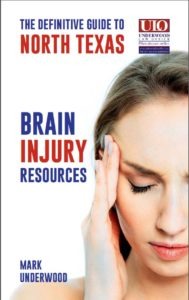
The physical and emotional suffering imparted by terminal illness cannot be denied, but often, terminal conditions also prompt their fair share of financial duress. Social Security Disability (SSD) benefits can play a key role in handling this financial burden—but many people who qualify struggle to understand their eligibility or get started with the application process.
A terminal illness can qualify for Social Security Disability benefits. We can assist you in filing your application and informing the SSA that your application should be hastened under the Social Security Administration’s Terminal Illness Program (TERI). We can also file an appeal and contest a denial if the SSA rejects your claim.
Below, we clarify the role terminal illness plays in qualifying for SSD.
Qualifying for Social Security Disability After a Terminal Diagnosis
Not only could you still qualify for Social Security Disability Insurance (SSDI) or Supplemental Security Income (SSI) after receiving a terminal diagnosis, but the process may also be sped up to ensure you receive benefits as quickly as possible. TERI is responsible for handling terminal cases in a prompt yet sensitive manner.
When an applicant, licensed health provider, attorney, or loved one states that the applicant is in hospice or their condition will likely lead to death, Disability Determination Services (DDS) can submit its claim to the TERI program for rapid processing. However, a claims examiner must first meet with a medical consultant before determining if an individual qualifies to receive expedited benefits.
Medical conditions that qualify for the Social Security Disability TERI program include:
- Metastatic cancer, stage IV cancer, inoperable cancer, or cancer that recurs after therapy
- Cancer of the esophagus, liver, brain, pancreas, or gallbladder
- Mesothelioma
- Small cell or oat cell lung cancer
- Dependence on a cardiopulmonary life-sustaining device
- A newborn with a fatal genetic or congenital defect
- Acute myelogenous or lymphocytic leukemia
- Being comatose for 30 days or more
- Anyone awaiting a heart, liver, lung, or bone marrow transplant
Also, an application may process under TERI if a person has received a diagnosis of amyotrophic lateral sclerosis (ALS) or acquired immunodeficiency syndrome (AIDS). The claims examiner must confer with a medical consultant before deciding that an individual qualifies for TERI treatment.
If your condition is terminal but not listed as a common TERI-approved condition, you can inform SSA so that it knows you will not recover from your illness and that your prognosis is death. Also, check SSA’s website for updates to the list of accepted conditions.
For a free legal consultation, call (972) 535-6377
How Substantial Gainful Activity Plays Into Terminal Illness Social Security Disability Benefits
Beyond processing, terminal cases are handled much like any other SSDI claim. For example, the condition must prevent the sufferer from engaging in “substantial gainful activity,” or any work that nets a monthly income of over $1,350. This is typically the case for terminal illnesses, which, in most cases, severely restrict patients’ ability to work.
Those who can continue working, however, may enjoy the distraction and routine provided by their jobs—and as long as their income remains below the aforementioned threshold, they should have no trouble maintaining eligibility.
Social Security Survivor’s Benefits
If you or a loved one dies, leaving dependent family members behind, those dependents can also receive Social Security benefits. Eligible family members include:
- A child under the ages of 18 or 19 if they are still in high school
- A surviving spouse over age 60
- A spouse with a disability over age 50
- A spouse of any age if they are caring for a child under the age of 16.
Your survivors are generally eligible for up to 75% of your monthly Social Security Disability payments. Benefits continue until your children become adults or if your surviving spouse elects to receive benefits under their account.
When an SSDI recipient dies, the decedent’s surviving spouse living in the same residence is entitled to receive a lump-sum death benefit of $255. If the married couple lived apart, the surviving spouse could still receive this benefit under certain conditions. In addition, a child who meets specific requirements can receive the payment when there is no surviving husband or wife.
Other Options for Application Acceleration
Applicants can also qualify for the Compassionate Allowances (CAL) or Quick Disability Determination (QDD) programs.
Compassionate Allowances (CAL)
Some SSD benefit applicants have severe, life-threatening illnesses, such as advanced cancer, that the SSA refers to as Compassionate Allowances. If an individual experiences one of these conditions, the SSA can accelerate the application process by determining their benefits eligibility without requiring the applicant to provide information about their education and work history.
Quick Disability Determination (QDD)
The SSA uses an automated method known as Quick Disability Determination to identify SSDI or SSI claims that warrant acceleration due to the applicant’s health status. During this process, a computer program searches for specific terminology in applicant information to determine persons who, according to SSA standards, qualify as disabled. Flagged applications are then transferred to a QDD examiner.
How to Receive Retroactive Benefits
A potential recipient of SSD benefits must experience a severe illness that precludes employment in order to qualify for having a disability. Therefore, if the time for hospice and terminal care has arrived, the individual has probably been qualified to receive disability benefits for some time. If you have a terminal illness and have not yet filed a claim, you may be owed retroactive benefits backdated to your debilitating condition’s onset. For these, you can receive a lump-sum payment after your SSDI or SSI application is approved.
Click to contact our personal injury lawyers today
Contact Us Today for Help From a Social Security Disability Benefits Lawyer
If you or a loved one has a terminal illness and intends to apply for SSDI or SSI, or if you have questions about the TERI system or other ways to expedite your case, it is essential to get answers before you apply. We can help you complete your application, ensure all supporting documentation is included before submission, and contact the SSA and advocate for you on your behalf.
As you deal with the physical and emotional burdens of terminal illness, the last thing you need is to stress over Social Security Disability benefits. We can handle these concerns so that you can focus on your health and other important matters. Get in touch today to learn more about our SSDI services. Contact Underwood Law Office today for a free consultation.
Call or text (972) 535-6377 or complete a Free Case Evaluation form





